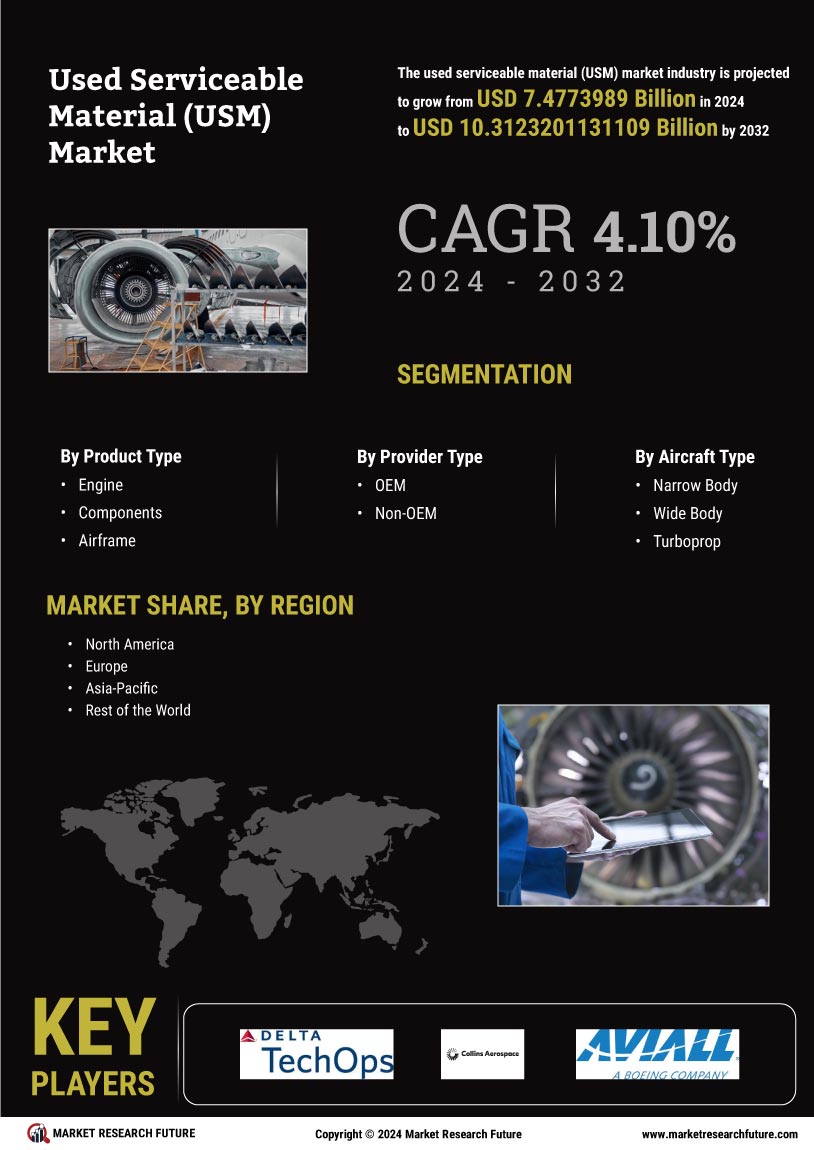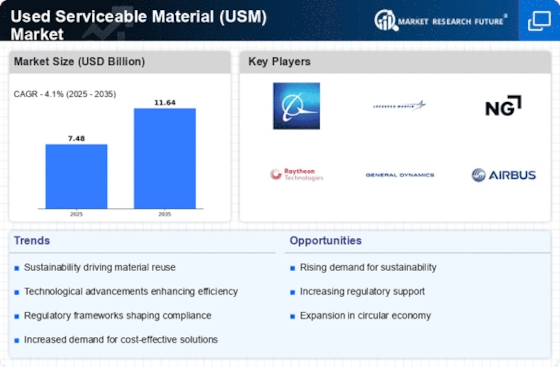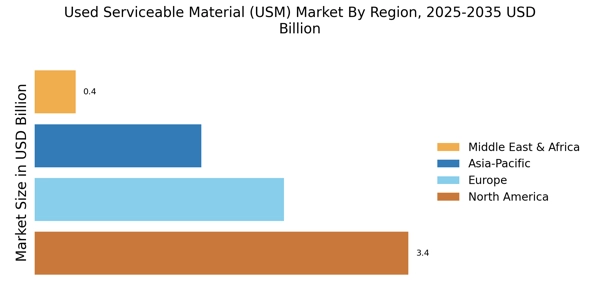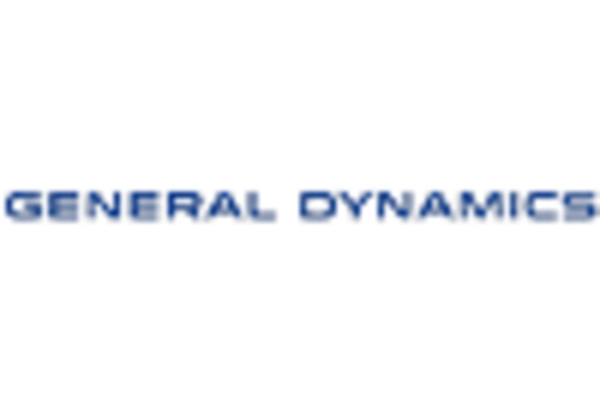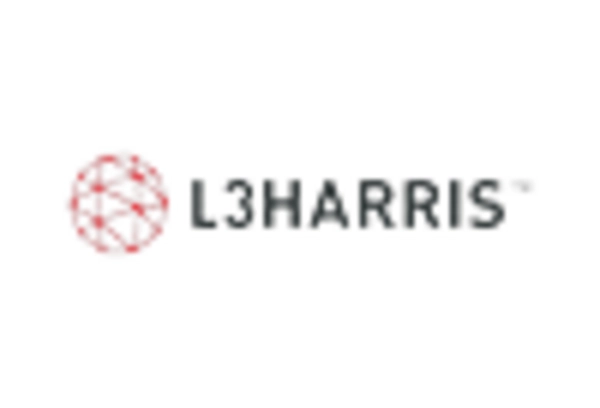Growing Awareness of Sustainability
The Used Serviceable Material Market is witnessing a surge in awareness regarding sustainability among consumers and businesses alike. As environmental concerns become more pronounced, organizations are increasingly recognizing the importance of sustainable practices in their operations. This heightened awareness is driving the demand for used serviceable materials, as companies seek to reduce their carbon footprints and promote circular economy principles. Recent surveys indicate that a significant percentage of consumers prefer products made from recycled materials, which further incentivizes businesses to incorporate used serviceable materials into their supply chains. The shift towards sustainability is not merely a trend; it appears to be a fundamental change in how businesses operate. As this awareness continues to grow, the used serviceable material market is likely to expand, reflecting a broader commitment to environmental stewardship.
Economic Factors and Resource Scarcity
Economic factors and resource scarcity are pivotal drivers of the Used Serviceable Material Market. As natural resources become increasingly limited, the pressure to find alternative materials intensifies. This scarcity compels industries to explore used serviceable materials as viable substitutes, thereby driving market growth. Economic fluctuations also influence the availability and pricing of raw materials, making used serviceable materials an attractive option for cost-conscious businesses. Recent analyses suggest that the market for used serviceable materials could see a significant uptick as companies seek to mitigate risks associated with resource scarcity. The interplay between economic conditions and material availability is likely to shape the future of the used serviceable material market, as organizations adapt to changing circumstances and prioritize sustainable sourcing strategies.
Environmental Regulations and Compliance
The Used Serviceable Material Market is significantly influenced by stringent environmental regulations and compliance requirements. Governments worldwide are implementing policies aimed at reducing waste and promoting recycling, which directly impacts the demand for used serviceable materials. For instance, regulations that mandate the recycling of certain materials have led to an increase in the availability of used serviceable materials in various sectors. This regulatory landscape encourages companies to adopt sustainable practices, thereby driving the growth of the used serviceable material market. As organizations strive to comply with these regulations, they are more likely to invest in used serviceable materials, which not only helps them meet legal requirements but also enhances their corporate social responsibility profiles. The interplay between regulatory frameworks and market dynamics suggests a robust future for the used serviceable material market.
Rising Demand for Cost-Effective Solutions
The Used Serviceable Material Market is experiencing a notable increase in demand for cost-effective solutions across various sectors. Companies are increasingly seeking to reduce operational costs while maintaining quality. This trend is particularly evident in industries such as manufacturing and construction, where the reuse of serviceable materials can lead to substantial savings. According to recent data, the market for used serviceable materials is projected to grow at a compound annual growth rate of approximately 5.2% over the next five years. This growth is driven by the need for businesses to optimize their supply chains and minimize waste, thereby enhancing profitability. As organizations become more aware of the financial benefits associated with utilizing used serviceable materials, the market is likely to expand further, indicating a shift towards more sustainable practices.
Technological Innovations in Material Recovery
Technological advancements play a crucial role in shaping the Used Serviceable Material Market. Innovations in material recovery and processing technologies have enhanced the efficiency and effectiveness of reclaiming used materials. For example, advancements in sorting and recycling technologies have made it easier to identify and extract valuable serviceable materials from waste streams. This has led to an increase in the quality and quantity of used serviceable materials available in the market. Furthermore, the integration of artificial intelligence and machine learning in recycling processes is expected to optimize operations and reduce costs. As these technologies continue to evolve, they are likely to drive further growth in the used serviceable material market, enabling businesses to access high-quality materials while minimizing environmental impact. The synergy between technology and sustainability is poised to redefine the landscape of the used serviceable material market.
